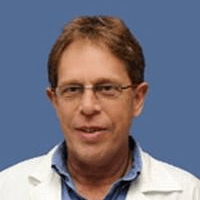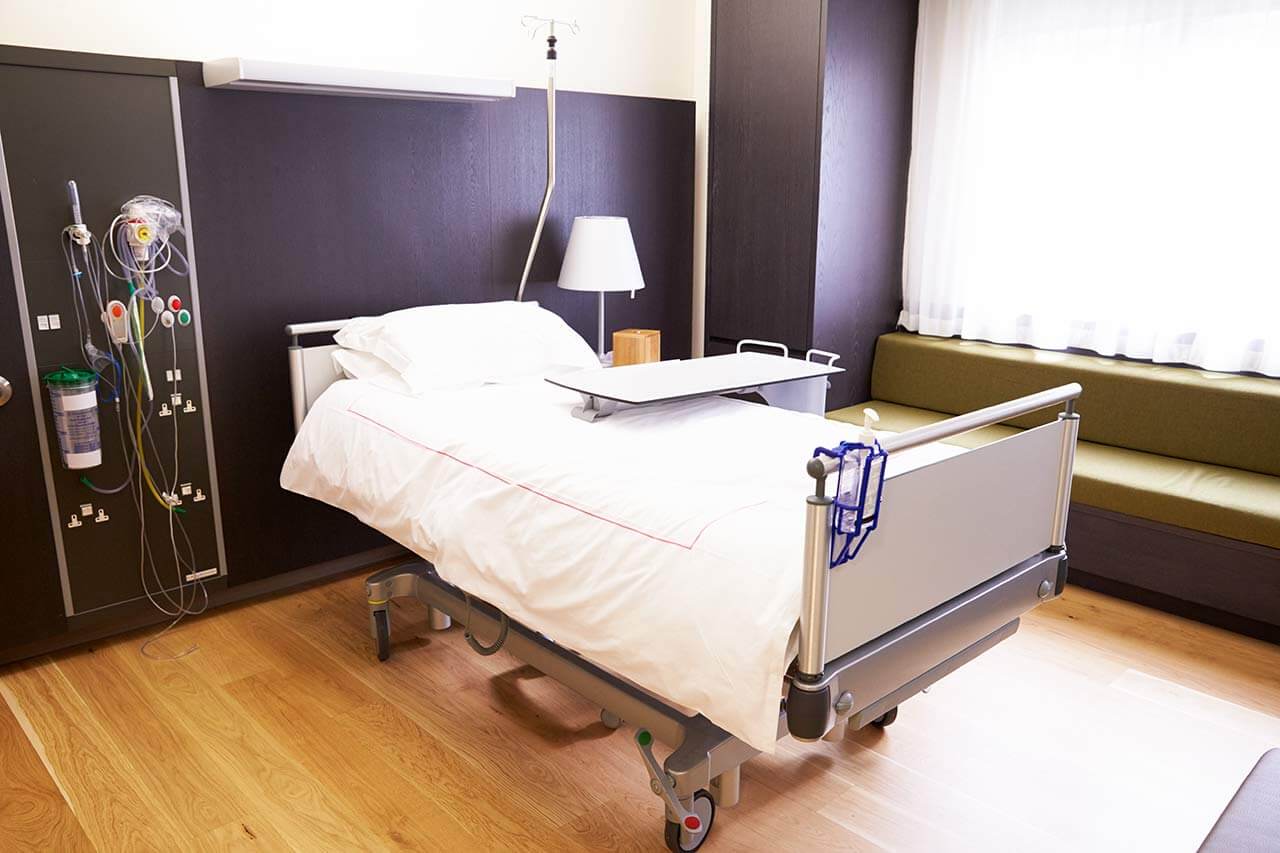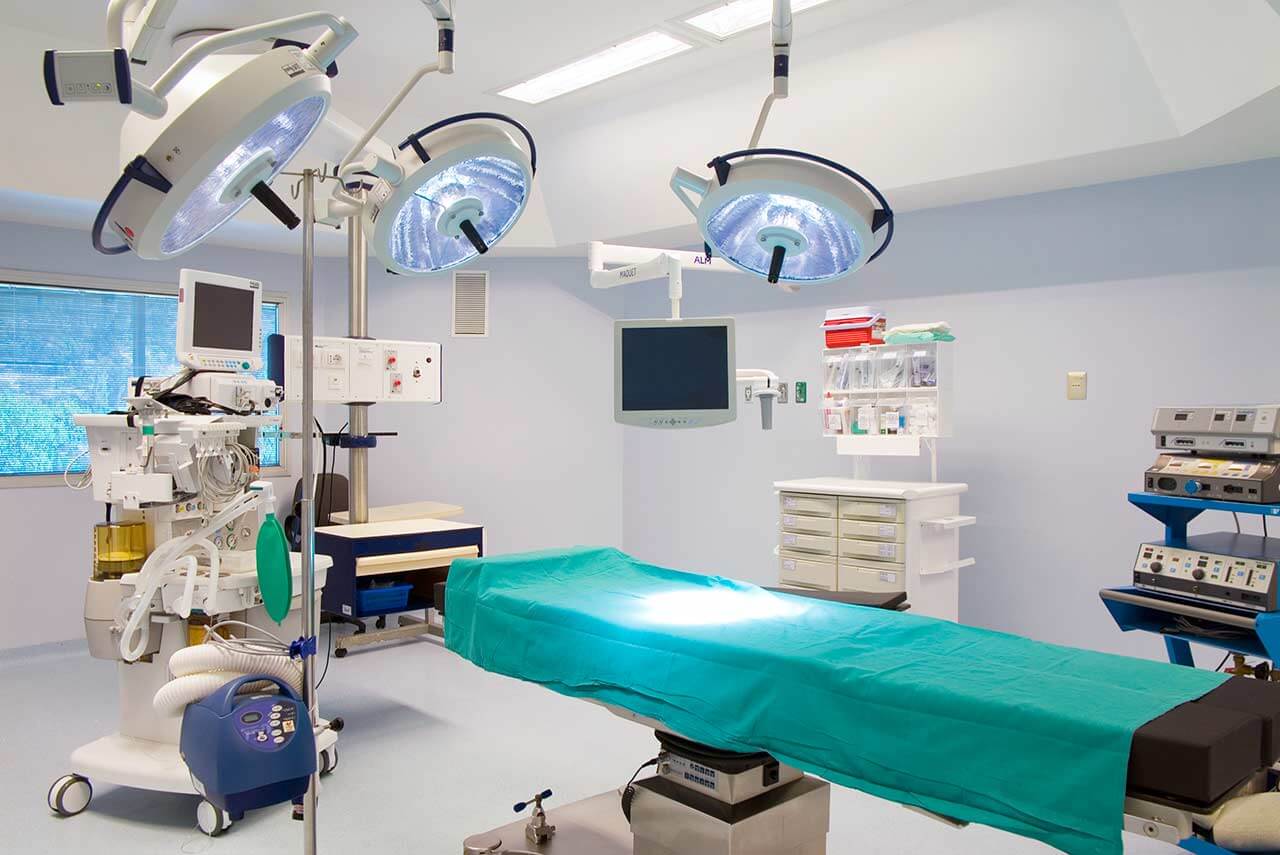
The program includes:
- Initial presentation in the clinic
- clinical history taking
- review of medical records
- physical examination
- laboratory tests:
- complete blood count
- general urine analysis
- biochemical analysis of blood
- inflammation indicators (CRP, ESR)
- indicators of blood coagulation
- neurological examination
- CT/MRI scan
- neuropsychological tests (if indicated):
- ENMG (electroneuromyography)
- EEG (electroencephalography)
- SEPs (somatosensory evoked potentials)
- VEPs (visually evoked potentials)
- BAEP tests (brainstem auditory evoked potentials)
- preoperative care
- MRI-guided laser ablation of brain metastases
- postoperative MRI control
- symptomatic treatment
- control examinations
- the cost of essential medicines and materials
- nursing services
- full hospital accommodation
- developing of further guidance by specialists
in oncology and radiotherapy
How program is carried out
During the first visit, the physician will conduct a clinical examination and neurological examination, and go through the results of the available diagnostic tests. After that, you will undergo the necessary additional examination, such as the laboratory blood and urine tests, MRI scan with obtaining 3D images and creating volumetric images of the whole brain. Based on the results of an additional examination, the physician will clarify the localization of brain metastases. After that, the preparation according to the preoperative standard will begin.
Laser ablation of metastases begins with the formation of access to the brain. When using a catheter with a laser fiber, a hole with a diameter of 3.2 mm is sufficient for this. The miniature size and flexibility of the catheter help preserve healthy brain tissue.
When the catheter reaches metastasis, energy is delivered through the laser fiber. Under the influence of high temperature, metastases are destroyed. The procedure is guided by real-time MRI. Surgeons also assess the temperature of healthy brain tissue using thermographic images to avoid overheating.
After the completion of the operation, you will be transferred to the ward, under the round-the-clock supervision of doctors and nurses. In several days, the attending physician will evaluate the results of the postoperative MRI scans, schedule the date of discharge from the hospital and give you detailed recommendations for further follow-up and treatment.
Required documents
- Medical records
- MRI/CT scan (not older than 3 months)
- Biopsy results (if available)
Service
You may also book:
 BookingHealth Price from:
BookingHealth Price from:
About the department
The Department of Neurosurgery at the Tel Aviv Sourasky Medical Center offers the widest range of diagnostic examinations and therapeutic methods for patients with diseases of the brain, spinal cord and peripheral nervous system. The department is considered the leading Neurosurgical Center in Israel and around the world. When treating patients, the doctors apply all available medical innovations and adhere to the highest international standards. The department is headed by Prof. Dr. med. Zvi Ram.
The team of doctors has advanced equipment and therapeutic methods. The department actively uses neuronavigation and intraoperative MRI, performs operations in full consciousness, endoscopic interventions, as well as synchronous intraoperative recording of electrophysiological activity during operations on the brain, spinal cord and peripheral nerves. All this guarantees the highest accuracy and safety of surgical treatment.
The department's specialists prefer complex treatment. In this regard, there is maintained close cooperation with specialists in the field of orthopedics, intensive care, endocrinology, otolaryngology, anesthesiology and invasive neuroradiology.
In addition to clinical activities, the employees of the department successfully conduct clinical trials at the international level and are members of steering committees and advisory boards of many pharmaceutical and biotechnological companies.
The surgical range of the department's services includes:
- Stereotactic radiosurgery and fractional stereotactic radiation
- Surgical treatment of auditory nerve neuroma (radiosurgery)
- Surgery to treat brain tumors
- Surgery to remove skull base tumors and reconstructive surgery
- Peripheral nerve reconstruction
- Various bypass methods for hydrocephalus
- Treatment of congenital malformations of the skull and spine
- Microvascular decompression for pain syndromes
- Pituitary surgery (standard and extensive endoscopic procedures)
- Stereotactic brain biopsy
- Craniotomy for benign and malignant brain tumors
- Craniotomy for metastatic brain lesions
- Cranioplasty
- Treatment of intracranial aneurysm
- Interventional endovascular treatment of cerebrovascular malformations, including aneurysms, arteriovenous malformations
- Treatment of stroke (revascularization by means of thrombolysis or embolectomy, local intra-arterial thrombolysis)
- Surgical treatment of epilepsy
- Surgical treatment of functional disorders, including Parkinson's disease and other motor disorders
- Endoscopic and minimally invasive brain surgery
- Other medical services
Curriculum vitae
Education
- Sackler School of Medicine, Tel Aviv University.
Continuing Education
- Postgraduate Courses in Neurology and Neurosurgery, Sackler School of Medicine, Tel Aviv University.
- 3rd Advanced Seminar in Neurosurgical Research, Venice.
- European Course in Neurosurgery: Infratentorial Tumors and Hydrocephalus, Amsterdam, the Netherlands; Microsurgical Techniques, University Hospital Zurich.
- Recombinant DNA Methodology.
- Neuropathology Review Course, Bethesda, Maryland.
- Workshop on Image-Guided Neurosurgery for Brain Tumors, Santorini, Greece
- Microsurgery of the Basal Cisterns, Denver, Colorado.
- Endoscopy and endoscopy-assisted microsurgery, Tutlingen/Mainz, Germany.
- Endoscopic Transsphenoidal Surgery, Vienna, Austria.
- Endoscopic approaches to skull base surgery, University of Pittsburgh Medical Center, Pittsburgh, USA.
Clinical Experience
- Rotating Internship, Chaim Sheba Medical Center, Tel Hashomer.
- Resident in Neurosurgery, Chaim Sheba Medical Center, Tel Hashomer.
- Resident in General and Vascular Surgery, Chaim Sheba Medical Center, Tel Hashomer.
- Senior Resident in Neurosurgery, Chaim Sheba Medical Center, Tel Hashomer.
- Chief Resident in Neurosurgery, Chaim Sheba Medical Center, Tel Hashomer.
- 1994 - 1999 Attending Neurosurgeon, Chaim Sheba Medical Center, Tel Hashomer.
- 1999 - 2003 Deputy Chairman, Department Of Neurosurgery, Chaim Sheba Medical Center, Tel Hashomer.
- Since 2003 Chief Physician of the Department of Neurosurgery, Tel Aviv Sourasky Medical Center.
Academic Experience
- 1991 - 1994 Visiting Scientist, Senior Staff Member, National Institutes of Health, Department of Neurosurgery, National Institute of Neurological Disorders and Stroke, Bethesda, Maryland.
- 1995 - 2000 Senior Lecturer in Surgery, Sackler Medical School, Tel Aviv University.
- 2000 - 2010 Associate Professor of Neurosurgery, Sackler Medical School, Tel Aviv University.
- Since 2010 Professor of Neurosurgery, Sackler Medical School, Tel Aviv University.
Prizes and Achievements
- 1990 Board Certification in Neurosurgery.
- 1991 Israel Medical Association Fellowship Award.
- 1991 Borenstein Neurological Award.
- 2008 Goldhirsh Award.
- 2008 Excellent Poster Presentation at the Annual Meeting of the European Association of Neuro-Oncology (EANO), Spain.
Memberships in Professional Societies
- 1990 Israel Medical Association.
- 1990 Israel Neurosurgical Society.
- 1990 Israel Surgical Society.
- 1992 Society of Neurosurgical Research, USA.
- 1994 American Association of Neurosurgery.
- 1995 Congress of Neurosurgery, USA.
- 1996 International Pituitary Club, USA.
- 1996 European Association of Neurosurgical Societies, Neuro-Oncology Committee, Europe.
- 1997 Secretary of the Israeli Society of Neurosurgery.
- 1997 Delegate to the World Federation of Neurosurgery.
- 1998 European Association of Neuro-Oncology (EANO).
- 2000 Member of the Israel Medical Association Scientific Council.
- 2000 Israel Cancer Association, Neuro-Oncology Committee.
- 2000 Ministry of Health, National Council for Surgery, Anesthesia and Intensive Care, Israel.
- 2007 Chairman of Neuro-Oncology Committee of the EANS.
- 2007 Ministry of Health, National IRB for Gene Therapy and Cell Based Therapeutics
Photo of the doctor: (c) Tel Aviv Sourasky Medical Center
About hospital
The Tel Aviv Sourasky Medical Center is the second largest and one of the most advanced healthcare and research facilities in Israel. It began its work in 1961, but it is still popular among the local population and attracts thousands of international patients.
The multidisciplinary medical center covers an area of 150,000 m². It has 60 departments and institutes with 1300 beds. The hospital annually provides its highly professional services to more than 1,5 million patients. In addition, the hospital enjoys prestige among doctors, many of whom want to have an internship and work here.
The medical center employs more than 6,400 people, among them more than 1,100 doctors, 1,760 nurses, 850 medical laboratory assistants, technical and other employees. The medical staff successfully combines clinical and research activities. The hospital annually conducts clinical trials aimed at the the development of new diagnostic and treatment methods.
Structurally, the medical facility is divided into four main hospitals. These include the General Hospital, the Rehabilitation Hospital, the Lis Maternity and Women's Hospital and the Dana-Dwek Children's Hospital.
The medical center is focused on individualized treatment. With adherence to the international standards of service, the specialists take into account the needs of each patient, his age and a specific clinical case. The medical center strives to provide treatment in a friendly and respectful atmosphere, with an empathic attitude to each patient.
Photo: (c) depositphotos
Accommodation in hospital
Patients rooms
The patients of the Tel Aviv Sourasky Medical Center live in comfortable rooms equipped with all necessary amenities. The standard room includes an automatically adjustable bed, a bedside table, a wardrobe for storing clothes. Also, each room has an ensuite bathroom with shower and toilet.
Meals and Menus
The medical center offers three meals a day: breakfast, lunch and dinner. For lunch, the patients have a choice of daily menus. If for some reason you do not eat all foods, you will be offered an individual menu. Please inform the medical staff about your food preferences prior to treatment.





